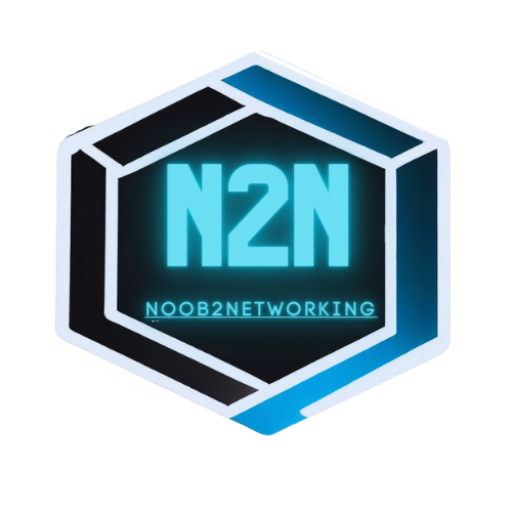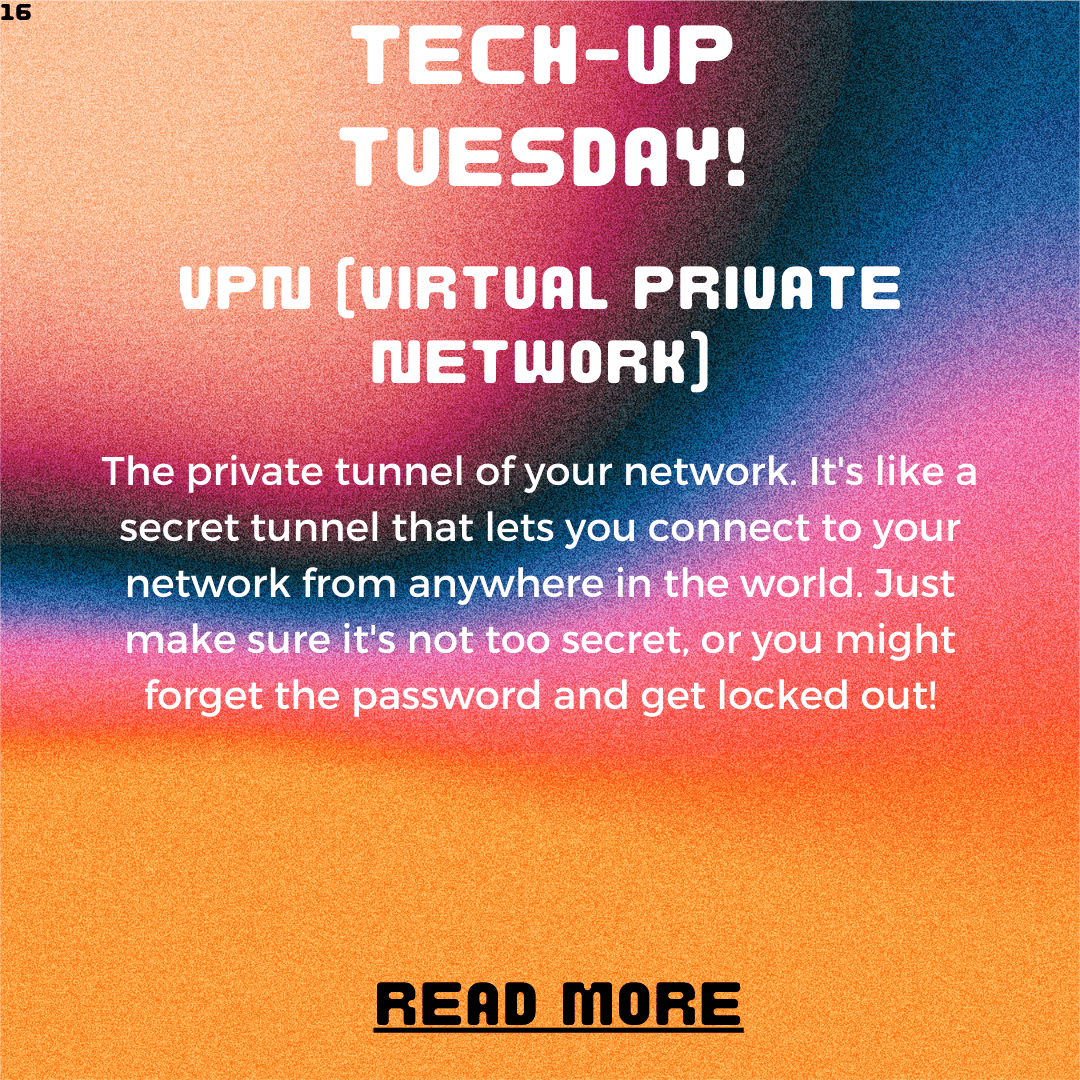Welcome to Tech-Up Tuesday, where we’ll be taking a closer look at Virtual Private Networks (VPNs) and how they work. If you’re someone who’s new to the world of VPNs and wondering what all the fuss is about, or if you’re interested in using a VPN but don’t know where to start, then you’re in the right place!
🔒 What are VPNs and why do you need them?
Think of a VPN as a secret tunnel that connects your computer or device to a private network. When you connect to a VPN, your internet traffic is routed through this tunnel, which encrypts your data and keeps it safe from prying eyes. This is particularly important if you’re using public Wi-Fi, as it’s easy for hackers to intercept your data and steal sensitive information like passwords or credit card details.
🔑 How do VPNs work?
VPNs use a combination of encryption and routing protocols to create a secure connection between your device and the VPN server. When you connect to a VPN, your device sends encrypted data through the tunnel to the VPN server. The VPN server decrypts the data, sends it to its intended destination, and then encrypts the response before sending it back to your device through the same tunnel. This way, your data is protected from anyone who might be trying to intercept it.
🛡️ Why is using a VPN important?
VPNs are important because they help protect your privacy and keep your data safe from hackers and other cyber threats. They also allow you to access content that might be blocked in your region, like streaming services or websites that are restricted in certain countries. Plus, using a VPN can help you avoid annoying targeted ads and other online tracking.
💻 Can I create my own VPN?
Absolutely! While there are plenty of VPN services out there that you can use, you can also create your own VPN if you’re up for a bit of a DIY project. This is a great option if you’re looking for complete control over your data and want to ensure that your online activity is kept private and secure.
Setting up your own VPN might sound daunting, but there are plenty of resources and guides available online that can help you get started. You’ll need to set up a server on your own network and configure it to act as a VPN server. Once that’s done, you can connect to your VPN from anywhere in the world and enjoy the added benefit of extra security and privacy.
In conclusion, VPNs are an essential tool for anyone who values their online privacy and security. They’re easy to use, affordable, and can help you avoid a lot of headaches down the road. Whether you choose to use a VPN service or create your own, the important thing is that you take steps to protect your online privacy and security. So, why not give a VPN a try and see how it can help you take your online security to the next level?


5 responses to “Tech-Up Tuesday: VPN – A Beginner’s Guide to Virtual Private Networks”
55666bong88… that’s a weird name but hey, if it works! Lookin for a new agent link. Trusted? Anyone had any luck with them? Worth a gamble? Check it here: 55666bong88
Downloaded the app from 939betdownload – super smooth experience. Hoping for some big wins, but the app itself is solid. Get it here 939betdownload
Hey VIPs! phwin88viplogin is where the high rollers play. The experience feels exclusive, and the rewards are pretty sweet. If you’re serious about your gaming, this is it! phwin88viplogin
Can you be more specific about the content of your article? After reading it, I still have some doubts. Hope you can help me.
Alright, mates! Checked out da88 and it’s not bad, ya know? Games are decent, and the site’s easy enough to muck around on. Give it a burl! Check it out here: da88